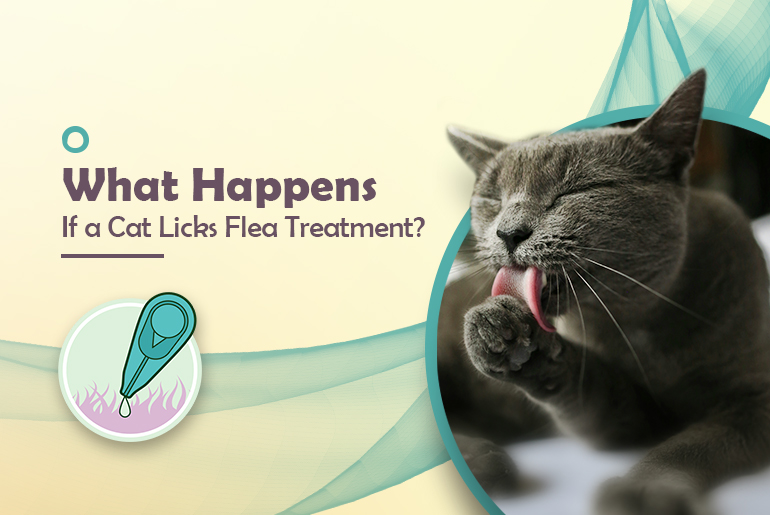Feline pet parents know well that cats are meticulous groomers. But their love for grooming scares us with the fact that they may unintentionally end up licking flea treatments. So, what happens if a cat licks flea treatment? Is it dangerous for them? How can you prevent your cat from licking the application? Let’s find out.
Is Licking Flea Medicines Dangerous?
Topical cat flea and tick treatments keep cats protected from nasty parasites like fleas and ticks. These products are designed to be applied on the skin and are safe for cats when used as directed. However, they are not meant to be ingested. The smell and the taste of the product may sometimes attract the cat to lick the application site. Sometimes, the grooming tendency of the cat may also result in the ingestion of the product. If licked accidentally, the ingredients may be potentially toxic for your feline love.
[Also Read] Which Flea & Tick Treatment is Right for Your Cat?
What Happens if a Cat Ingests Flea Treatment?
If your cat licks flea medicine, it can potentially lead to any of the following symptoms of poisoning:
- Drooling
- Vomiting
- Diarrhea
- Seizures
- Tremors
- Itchiness
- Muscle twitching
- Trembling
If you suspect that your cat has ingested a flea medicine, it is essential to see veterinary advice, as prompt action can help minimize any potential harm to the cat.
How Do I Prevent My Cat from Licking the Flea Medicine?
There are several preventive measures you can take to nullify the chances of your cat licking flea medicine. These include:
1. Use flea and tick treatments as directed.
When using flea and tick medicine for your cat, always ensure you follow the instructions provided on the label. Read the packaging information thoroughly and contact your vet in case of any doubts.
2. Apply the treatment on hard-to-reach areas.
Generally, flea and tick spot-ons are applied on the cat’s skull or in the areas where it is hard for them to lick. But again, only use it as per the guidelines provided by the manufacturer.
3. Monitor your cat after application.
Closely monitor your cat after applying flea topical to ensure they don’t immediately try to lick it off. If you suspect them doing so, try to distract them with play or treats and prevent them from grooming.
4. Keep the treated pets isolated after application.
In the case of a multi-pet household, keep the treated pet isolated for a few hours until the application site dries. This will prevent other pets from licking the application site.
5. Switch to chewable or collar treatments.
If stopping your pet from licking the flea medicine is getting difficult for you, you can alternatively use flea and tick chewable or flea collars to eliminate the risk of poisoning due to licking.
By taking these preventive measures, you can help minimize the risk of your cat ingesting flea medicine and reduce the likelihood of any associated health issues.
